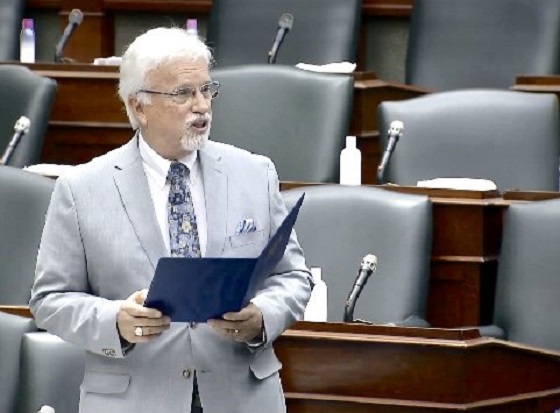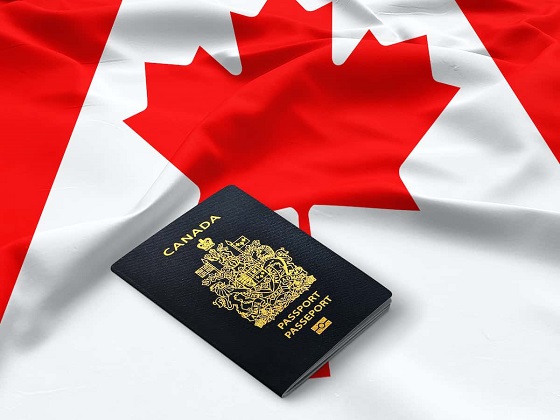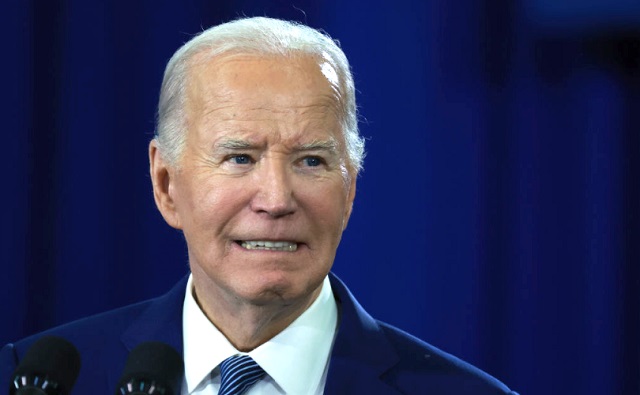Economy
Federal government remains intransigent on emissions cap despite dire warnings of harm

From the Fraser Institute
In the face of heavy opposition from Canada’s premiers to Prime Minister Trudeau’s carbon tax, one might have hoped that the prime minister would moderate some of his government’s extreme climate policies. But alas, on a recent swing through Alberta, he threw cold water on any hope of moderation.
When asked in a meeting with a who’s who of Alberta’s energy sector if he might drop the forthcoming cap on greenhouse gas emissions specific to the oil and gas industry, Trudeau reportedly replied “not a chance.” That’s a shame, because it was an opportunity for Canada (and Alberta) to dodge another bullet aimed at its economic heart, and an opportunity to reduce some of the rancor between the West and Ottawa.
And in fact, there are many good reasons to drop the GHG cap.
In a recent report, the Conference Board of Canada estimated oil and gas production cuts due to the cap would lead to a permanent decline in Canada’s real GDP of between 0.9 per cent (the report’s most likely outcome) to 1.6 per cent (its least likely outcome) relative to the baseline in 2030. Which means a loss of $22.8 billion to $40.4 billion in 2012 dollars. In Alberta, real GDP by between 3.8 per cent and 6.7 per cent (or $16.3 billion to $28.5 billion). These are devastating impacts, hand-waved away by the prime minister.
Moreover, the report estimates total employment declines nationally by between 82,000 and 151,000 in 2030. A large part of this unemployment will land in Alberta where the report estimates total employment in the province would decline by between 54,000 and 91,500 jobs. And between 2030 and 2040, employment in Alberta will be between 66,300 and 102,600 lower per year (on average). Again, these are huge economic damages disregarded by the prime minister.
Lastly, as shown in a 2023 study published by the Fraser Institute, even if the proposed cap achieved the emissions reductions government predicts, the reduction would equal four-tenths of one per cent of global emissions, a reduction unlikely to have any impact on the climate in any detectable manner, and hence, to offer only equally undetectable environmental, health or safety benefits.
The Conference Board report, and other studies of the likely high costs and non-existent climate benefits of the pending cap on oil and gas emissions, would offer cover for the prime minister if he backed away from what’s clearly an ill-considered climate policy poised to wreak massive economic harms to Canada, particularly in the West. Apparently, however, he’s unwilling to acknowledge reality and change course.
Author:
Automotive
Canadian interest in electric vehicles falls for second year in a row: survey

From LifeSiteNews
Canadians’ disinterest in electric vehicles comes as the Trudeau government recently mandated that all new light-duty vehicles in Canada are zero emission by 2035.
Research has revealed that Canadians are increasingly unwilling to purchase an electric vehicle (EV).
According to an April 22 survey from AutoTrader, Canadians remain skeptical of Prime Minister Justin Trudeau’s electric vehicle mandate and ongoing advertisement surrounding electric vehicles, as interest in owning one dropped for a second year in a row.
“Overall, while almost half of non-EV owners are open to buying an EV for their next vehicle, interest in EVs has declined for the second year in a row,” reported Tiffany Ding, director of insights and intelligence at AutoTrader.
In 2022, at least 68 percent of Canadians were interested in buying an electric vehicle. However, by 2023, the number declined to 56 percent. So far in 2024, there is even less interest, with only 46 percent saying they were open to purchasing one.
“AutoTrader data shows a direct correlation to gas prices and EV interest, and since gas prices have normalized from their peak in 2022, EV interest has also dropped,” a summary of the survey explained.
However, Canadians did show a slight increase of interest in hybrid vehicles, with 62 percent of those looking to purchase an electric vehicle saying they would look at a gas-electric hybrid, compared with 60 percent in 2023.
The survey also questioned Canadians regarding Trudeau’s Zero Emission Vehicle (ZEV) mandate, which requires all new light-duty vehicles in Canada are zero-emission by 2035, essentially banning the sale of new gasoline/diesel-only powered cars.
The mandate comes despite warnings that it would cause massive chaos by threatening to collapse the nation’s power grids.
“Over 75 percent of respondents are aware of the federal government’s ZEV mandate, which requires all new light-duty vehicles sold in Canada to be zero-emission by 2035,” the survey found.
However, the respondents revealed that they believe it’s “unlikely that Canada will be able to meet the federal government’s ZEV target due to the current inadequate charging infrastructure or a change in political power that could revoke or amend the ZEV mandate timeline.”
Canadians’ concerns in buying an electric vehicle include limited travel range/distance, inadequate availability of charging stations, higher purchasing costs, and concerns that they do not perform well in cold weather.
Indeed, this winter, western Canadians experienced firsthand the unreliability of Trudeau’s “renewable” energy scheme as Alberta’s power grid nearly collapsed due to a failure of wind and solar power.
Trudeau’s plan has been roundly condemned by Canadians, including Alberta Premier Danielle Smith. In 2022, Smith denounced a federal mandate that will require all new cars sold after 2035 to be “zero emission” electric (EVs) vehicles and promised that Albertans will always have the choice to buy gasoline-powered cars.
Since taking office in 2015, Trudeau has continued to push a radical environmental agenda similar to the agendas being pushed the World Economic Forum’s “Great Reset” and the United Nations’ “Sustainable Development Goals.”
The reduction and eventual elimination of the use of so-called “fossil fuels” and a transition to unreliable “green” energy has also been pushed by the World Economic Forum (WEF) – the globalist group behind the socialist “Great Reset” agenda – an organization in which Trudeau and some of his cabinet are involved.
The Trudeau government’s electric vehicle plan comes despite the fact Canada has the third largest oil reserves in the world. Electric cars cost thousands more to make and buy, are largely considered unsuitable for Canada’s climate as they offer poor range and long charging times during cold winters and have batteries that take tremendous resources to make and are difficult to recycle.
Business
Ottawa’s capital gains tax hike—final nail in ‘business investment’ coffin

From the Fraser Institute
By Tegan Hill and Jake Fuss
From 2014 to 2022, inflation-adjusted total business investment (in plants, machinery, equipment and new technologies but excluding residential construction) in Canada declined by C$34 billion. During the same period, after adjusting for inflation, business investment declined by a total of $3,748 per worker
According to the recent federal budget, the Trudeau government plans to increase the inclusion rate from 50 per cent to 66.7 per cent on capital gains over $250,000 for individuals and on all capital gains realized by corporations and trusts. Unfortunately, this tax hike will be the final nail in the coffin for business investment in Canada, which likely means even harder economic times ahead.
Canada already faces a business investment crisis. From 2014 to 2022, inflation-adjusted total business investment (in plants, machinery, equipment and new technologies but excluding residential construction) in Canada declined by C$34 billion. During the same period, after adjusting for inflation, business investment declined by a total of $3,748 per worker—from $20,264 per worker in 2014 to $16,515 per worker in 2022.
While business investment has declined in Canada since 2014, in other countries, including the United States, it’s continued to grow. This isn’t a post-COVID problem—this is a Canada problem.
And Canadians should be worried. Businesses investment is key for strong economic growth and higher living standards because when businesses invest in physical and intellectual capital they equip workers with the tools and technology (e.g. machinery, computer programs, artificial intelligence) to produce more and provide higher quality goods and services, which fuels innovation and higher productivity. And as firms become more efficient and increase profits, they’re able to pay higher wages, which is why business investment remains a key factor for higher incomes and living standards.
The Trudeau government’s policies—increased regulation, particularly in the energy and mining sectors (which makes Canada a relatively unattractive place to do business), higher and uncompetitive taxes, and massive federal deficits (which imply future tax increases)—have damaged business investment.
Unsurprisingly, weak business investment has correlated with a weak economy. In the fourth quarter of 2023, real economic growth per person ($58,111) officially fell below 2014 levels ($58,162). In other words, Canadian living standards have completely stagnated. In fact, over the last decade economic growth per person has been the weakest on record since the 1930s.
Instead of helping fix the problem, the Trudeau government’s capital gains tax hike will further damage Canada’s economy by reducing the return on investment and encouraging an exodus of capital from the country. Indeed, capital gains taxes are among the most economically-damaging forms of taxation because they reduce the incentive to invest.
Once again, the Trudeau government has enacted a policy that will deter business investment, which Canada desperately needs for strong economic growth. The key takeaway for Canadians? Barring a change in policy, you can expect harder times ahead.
Authors:
-

 Business21 hours ago
Business21 hours agoOttawa’s capital gains tax hike—final nail in ‘business investment’ coffin
-

 Automotive20 hours ago
Automotive20 hours agoCanadian interest in electric vehicles falls for second year in a row: survey
-

 COVID-1913 hours ago
COVID-1913 hours agoFormer Canadian lawmaker has no regrets about refusing COVID shot despite losing his job
-

 Alberta13 hours ago
Alberta13 hours agoCanada’s postal service refuses to help with Trudeau’s gun ban buyback program: report
-

 COVID-1913 hours ago
COVID-1913 hours agoPeckford: Hallelujah! Supreme Court of Canada to hear Newfoundland and Labrador charter case
-

 Frontier Centre for Public Policy2 days ago
Frontier Centre for Public Policy2 days agoHow much do today’s immigrants help Canada?
-

 Bruce Dowbiggin1 day ago
Bruce Dowbiggin1 day agoIn Toronto The Leafs Always Fall In Spring: 2024 Edition
-

 Alberta38 mins ago
Alberta38 mins agoAlberta’s vision for passenger rail











